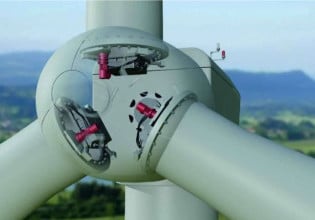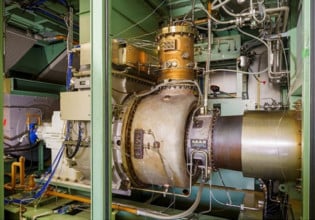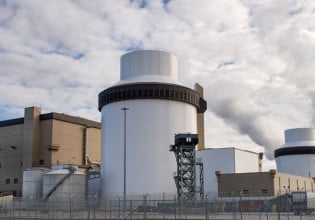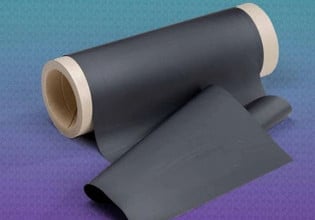ABB Drop-in AC Induction Motor Replacement Features Higher Efficiency
ABB’s SP4 technology achieves NEMA super premium efficiency in standard AC induction motors operating without variable speed drives.
Motors are integral to many aspects of modern civilization, powering everything from industrial machinery to household appliances. The demand for motor-driven technologies is only expected to increase. However, motors tend to consume significant power, causing scalability concerns as more motors are used.
ABB’s SP4 motors target power and cost efficiency with an average of 20% reduced losses. This article reviews the need to enhance AC motor efficiency and examines ABB’s new motors to see how they can be a solution.
SP4 motor. Image courtesy of ABB
Motors Driving the World Forward
AC motors operate on the principle of magnetism. Consisting of a wire coil amidst stationary magnets encircling a central shaft, these motors transform into an electromagnet upon exposure to alternating current (AC), generating a magnetic field. Power is channeled to the outer stator coils in pairs and sequences, creating a rotating magnetic field.
Even in an ideal world without unwanted losses, charging coils to create magnetic fields requires a lot of energy. In reality, it's even worse, as AC induction motors encounter multiple losses during operation. These include copper losses from resistance in windings, iron losses from eddy currents and hysteresis in the core, and mechanical losses from friction and air resistance.
High-voltage AC induction motor. Image used courtesy of ABB
In the context of AC motors, the pressing issue of energy efficiency in industry has garnered significant global attention. The International Energy Agency (IEA) report recently reported that industry sectors account for a significant 37% share of global energy consumption and contribute a substantial 24% to the overall carbon dioxide emissions. Notably, electric motors were identified as a focal point, with their usage constituting approximately 70% of electricity consumption within industrial settings and 45% of the world’s total electricity.
ABB Motors’ Efficiency Gains
ABB has announced a set of AC motors they say have higher efficiencies to combat growing concerns.
While more details are unknown, ABB claims the ABB Baldor-Reliance SP4 motors are a drop-in replacement for conventional AC induction motors but are 20% more efficient. These efficiency gains are for direct online operation (i.e., no variable speed drive), but when paired with a drive, ABB says the efficiency gains are even higher.
As a testament to their improved efficiency, SP4 motors meet the NEMA Super Premium efficiency standard. This means these motors run cooler, reduce heat-based energy losses, and extend component life. For businesses, this ultimately lowers operating costs and total ownership expenses.
SP4 motors also comply with current U.S. Department of Energy efficiency standards and the forthcoming Medium Electric Motor regulations, effective June 1, 2027. These regulations stipulate NEMA Premium efficiency for motors up to 100 horsepower and NEMA Super Premium efficiency for those between 100 and 250 horsepower.
Powering Energy Progress
As global energy demands rise, electric motors consume a continually increasing percentage of worldwide energy. ABB’s SP4 motors hope to change this narrative by offering a more efficient offering without sacrificing performance. Adhering to stringent efficiency regulations, these motors have serious potential to help us achieve a more sustainable and efficient industrial landscape.








